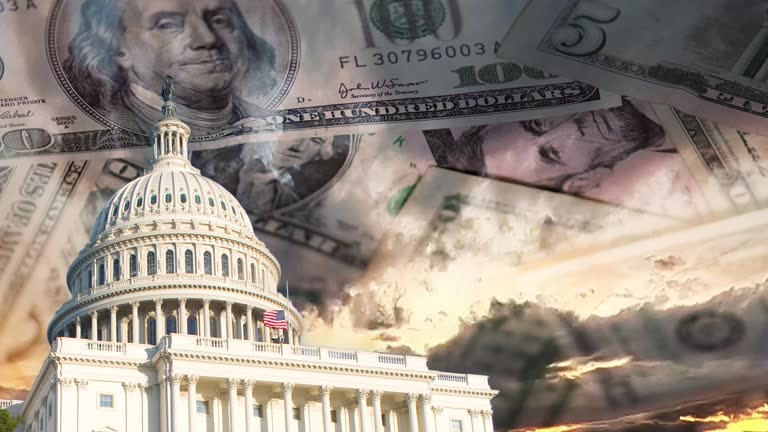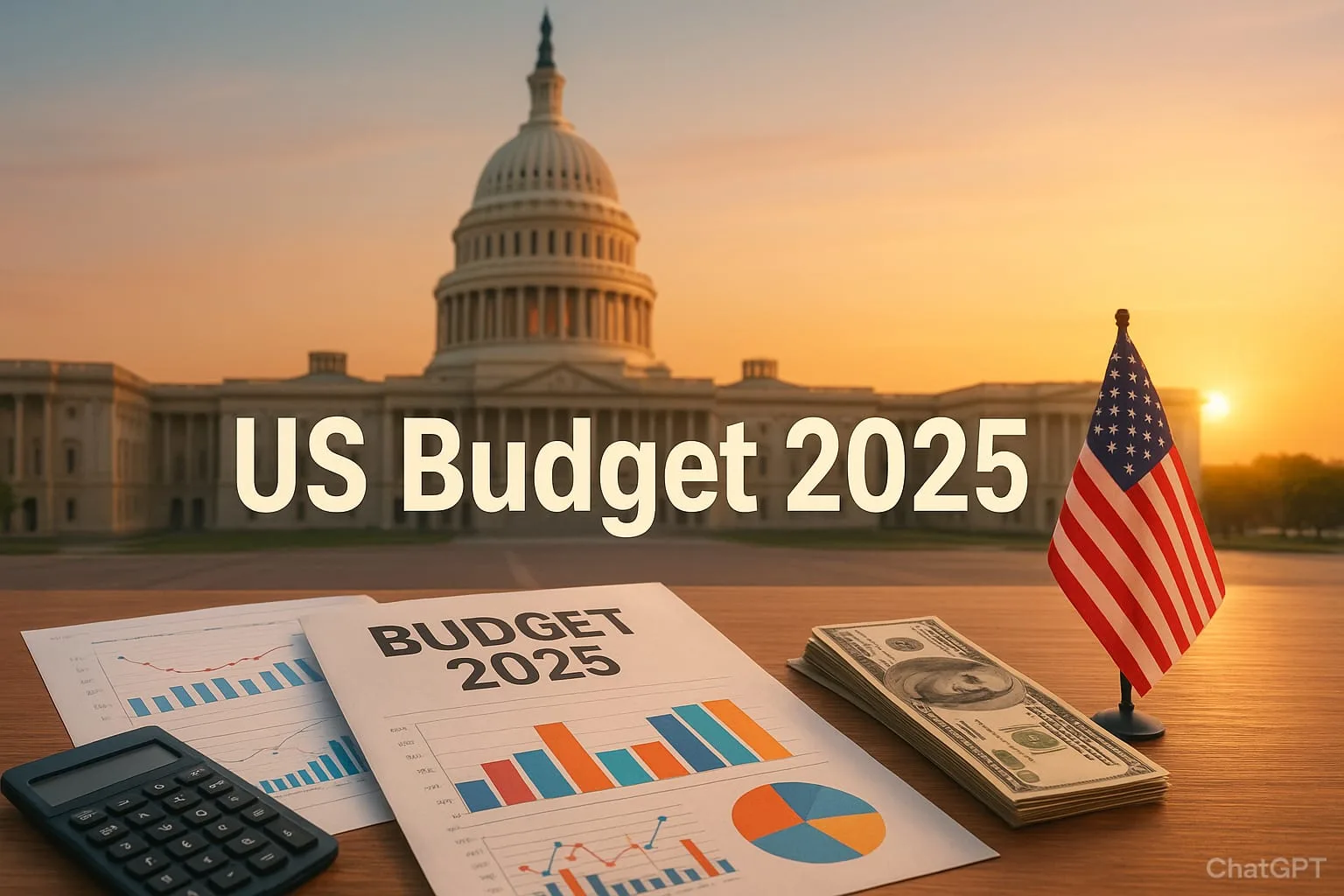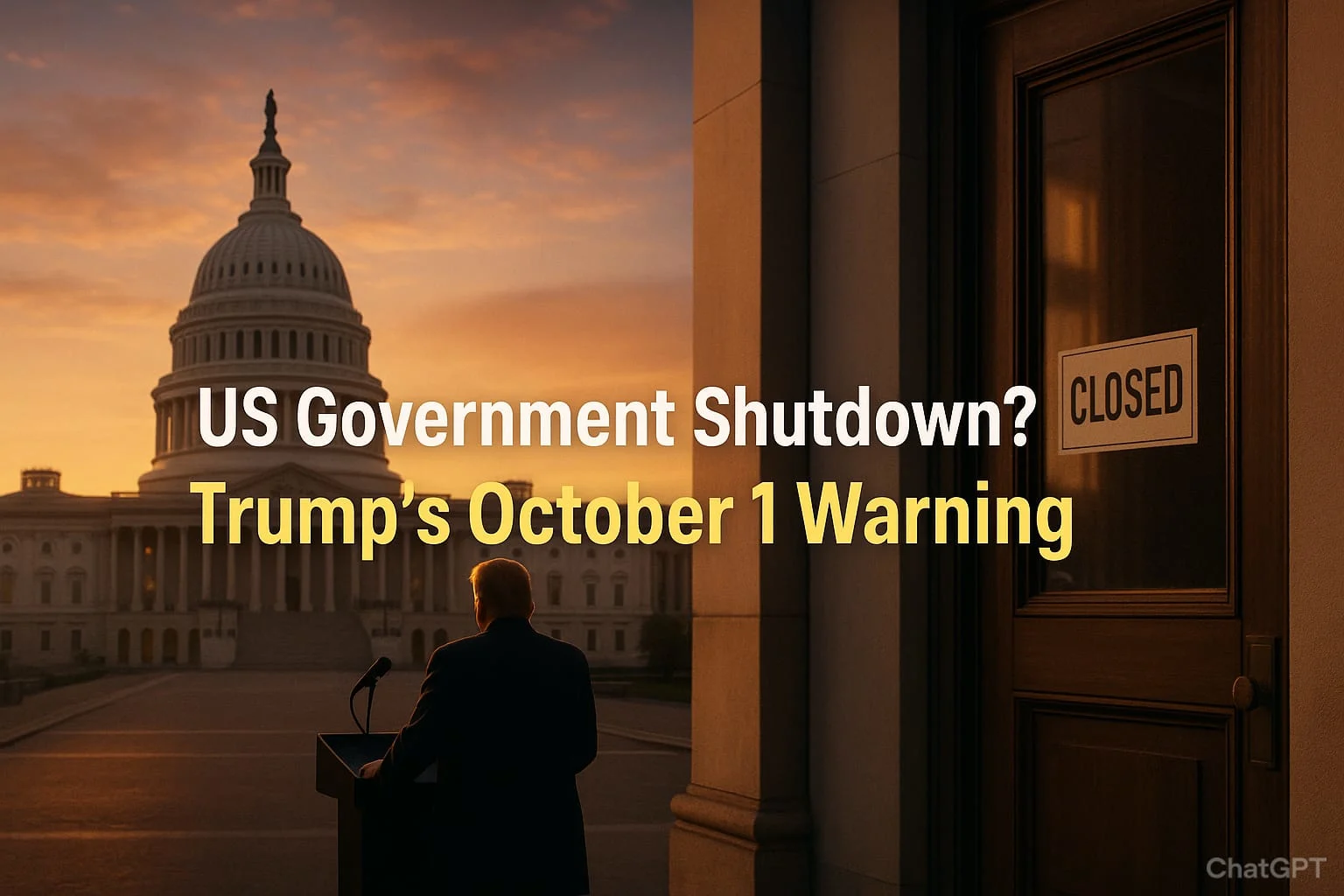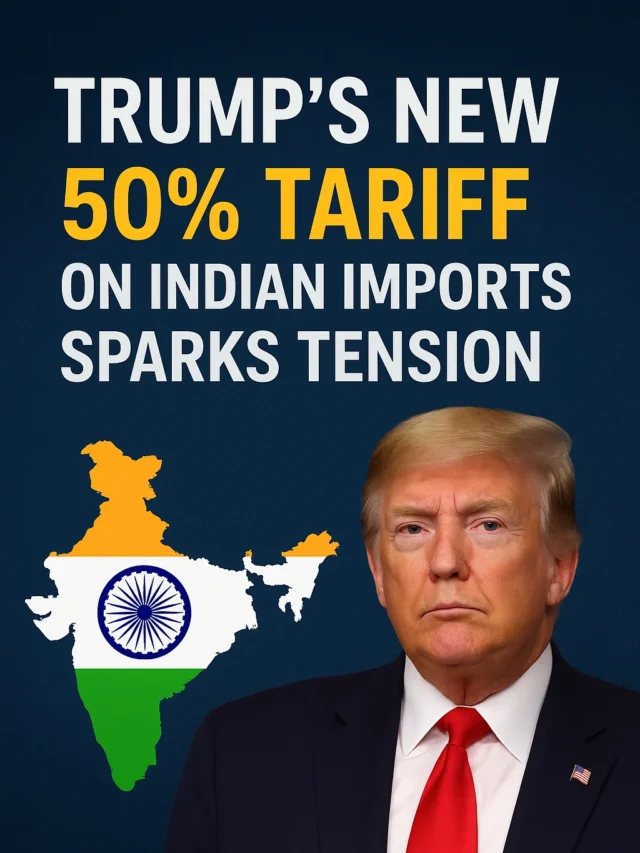In the United States, October 1st is not only a calendar date but also a crucial day for government shutdown operations. Donald Trump recently stated that the government could “very well” shut down if Congress fails to agree on a budget. This statement has created a stir in political circles. Let’s examine the truth and why it’s important.
Let’s first explain a government shutdown in simple terms. When the government fails to pass a new budget or approve a temporary funding bill, work in many non-essential departments of the federal government comes to a halt. Many government employees are furloughed without pay, and many services are slowed or suspended, directly impacting the public and the economy.
The fiscal year in the United States begins on October 1st each year. If a new budget isn’t approved by September 30th, government departments will not receive funding in the new year. This year, the Republican-led House passed a temporary funding bill that would keep the government running at current levels until November 21st.
U.S. Fiscal Year Highlights

Image Source: Getty Images
📅 Fiscal Year Start
October 1st every year
⏳ Budget Deadline
September 30th or funding stops
💵 Temporary Funding
Running at current levels till Nov 21
✅ This stopgap prevents an immediate shutdown but only funds the government temporarily.
But the bill failed to pass in the Senate. Democrats there objected to issues related to healthcare (such as Affordable Care Act subsidies) and Medicaid cuts, and the Senate blocked the bill.
Trump has clarified that if this dispute is not resolved, the government shutdown could be “closed,” meaning certain departments or services could be halted.
This dispute also has significant economic implications. The US Federal Government’s budget currently runs into trillions of dollars. For example, the 2025 federal budget proposal is projected to be approximately $7 trillion, covering various government shutdown needs—defense, education, health, Social Security, and so on.
U.S. Federal Budget Impact 2025

💰 Huge Budget
U.S. Federal budget runs into trillions of dollars
📊 2025 Proposal
Approximately $7 trillion planned for 2025
🛡 Key Areas
Defense, education, health, Social Security & more
⚠️ This dispute has significant economic implications nationwide.
If a government shutdown occurs, millions of government employees’ salaries could be delayed or even stopped, the government’s debt ceiling and interest payments would be affected, and uncertainty would increase in the economy. Additionally, the public would experience disruptions in services such as health insurance, public transportation, visas, and passports.
What is the situation now, and what will happen?
- The House passed a clean stopgap bill that proposes to keep the government running until November.
- The bill has not been approved in the Senate because Democrats want no health care cuts and to include subsidies and Medicaid-related issues.
- Congress returns in a few days (the Senate reconvenes on September 29th) and has limited time to reach a compromise.
Government Funding Update
📑 House Action
Passed a clean stopgap bill to keep government running until November.
⚠️ Senate Hold
Not approved due to Democrats’ demands on health care cuts, subsidies & Medicaid.
⏳ Limited Time
Senate reconvenes September 29th with limited time to reach compromise.
🇺🇸 All eyes are on Congress as the deadline approaches.
Conclusion:
Trump’s statement—that the government shutdown could shut down on October 1—is entirely speculative, as the Senate hasn’t yet reached the necessary votes. To keep the government running, either a clean continuing resolution must be passed or a budget agreed upon by both parties must be developed. If this doesn’t happen, a shutdown is possible.
This is also an important issue for ordinary people because it’s not just a political game, but a matter that impacts their daily lives. If you ask: Do you think Congress will be able to reach a compromise in time this time, or is a government shutdown unavoidable?
See Also:
🔷 India vs US: Is there a rift in relations?
🔷 Did America really lose India? Know the opinion of experts
🔷 August Employment Data Could Confirm Labor Market Slowdown, Boosting Fed Rate Cut Hopes











